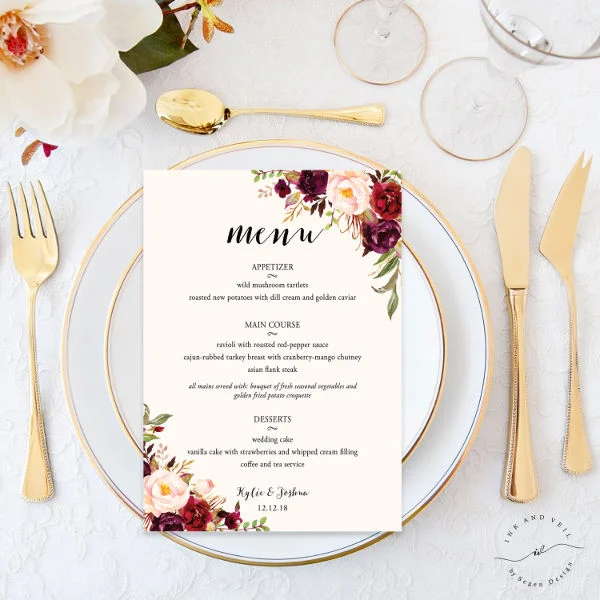I. Understanding the Ideal Timing for a Bridal Shower

A. The Significance of Timing in Planning a Bridal Shower
When it comes to planning a bridal shower, timing is key. The timing of the event can greatly impact the overall experience for the bride-to-be and the guests. A well-timed bridal shower can set the tone for the wedding festivities and create lasting memories for everyone involved.
B. Factors to Consider When Determining the Timing
There are several factors to consider when determining the timing of a bridal shower. First and foremost, it’s important to consider the bride’s schedule and availability. You’ll want to choose a date that works well for her and ensures that she can fully enjoy the celebration. Additionally, you’ll need to consider the availability of the bridal party, close family members, and other important guests.
Other factors to keep in mind include the time of year, the location of the event, and any potential conflicts with other events or holidays. Ultimately, the goal is to choose a date and time that maximizes attendance and ensures a memorable experience for the bride-to-be.
II. Setting the Date: How Far in Advance to Host the Bridal Shower
A. Approximate Timeline: A General Guide for Scheduling
When it comes to setting the date for a bridal shower, it’s important to plan ahead. A general guide for scheduling is to host the bridal shower approximately two to three months before the wedding day. This timeframe allows for enough time for the bride to finalize any remaining wedding details, while also giving the guests ample time to make arrangements to attend.
It’s also important to consider the day of the week when scheduling the bridal shower. Typically, weekends are the best option, as they allow for the most flexibility for both the bride and the guests. However, if the bride has a busy schedule, a weekday evening may also be a suitable option.
B. Tailoring the Date to the Bride’s Circumstances
Ultimately, the ideal timing for a bridal shower will depend on the bride’s individual circumstances and preferences. If the bride has a particularly hectic schedule leading up to the wedding, it may be best to host the bridal shower further in advance. On the other hand, if the bride has specific preferences or traditions that she would like to incorporate into the bridal shower, it’s important to take these into account when scheduling the event.
III. Considering Proximity to the Wedding Date

A. The Impact of Hosting the Bridal Shower in Close Proximity to the Wedding
Hosting the bridal shower in close proximity to the wedding can have both positive and negative impacts on the overall wedding experience. On the positive side, hosting the bridal shower close to the wedding date can create a sense of excitement and anticipation for the upcoming nuptials. It can also serve as a way to kick off the wedding celebrations and help the bride feel even more special as the big day approaches.
However, hosting the bridal shower too close to the wedding date can also add additional stress for the bride and her family. With last-minute wedding preparations, final dress fittings, and other related tasks, squeezing in a bridal shower can potentially become overwhelming. Additionally, guests may also find it challenging to attend both the bridal shower and the wedding if they are held in quick succession.
B. Assessing the Benefits and Drawbacks of Pre-Wedding and Post-Wedding Showers
-
Pre-Wedding Showers
Hosting the bridal shower before the wedding has several benefits. It allows the bride to relax and enjoy the celebration without any added pressure from last-minute wedding preparations. It also gives guests an opportunity to offer their well wishes and support to the bride before she embarks on her new journey. Additionally, a pre-wedding shower provides the bride with an opportunity to use any gifts or advice she receives before the wedding day, adding to the excitement of the upcoming nuptials.
However, there are also potential drawbacks to hosting a pre-wedding shower. For guests who are not local, attending a pre-wedding shower may require additional travel, which can be burdensome and costly. Moreover, hosting a pre-wedding shower too far in advance may lead to the bride feeling overwhelmed with a prolonged period of pre-wedding celebrations, impacting her focus on wedding planning and preparation.
-
Post-Wedding Showers
Hosting the bridal shower after the wedding has its own set of benefits. It allows the bride to fully enjoy her wedding day without any distractions, and gives her something to look forward to after the excitement of the wedding has passed. Additionally, a post-wedding shower can provide an opportunity for the bride to share her wedding day experiences and pictures with her loved ones, extending the joy and celebration beyond the actual wedding date.
However, there are also potential drawbacks to hosting a post-wedding shower. Some guests may have already allocated their time and resources for the wedding, making it difficult for them to attend an additional event. Additionally, the timing of a post-wedding shower may also clash with the couple’s honeymoon or post-wedding plans, leading to potential scheduling conflicts.
IV. Coordinating with the Bride’s Schedule and Preferences

A. Finding a Date That Aligns with the Bride’s Availability
When coordinating the date of the bridal shower, it’s crucial to align with the bride’s availability. Consider her work schedule, personal commitments, and any pre-wedding tasks on her to-do list. Flexible dates and times can help accommodate the bride’s availability and ensure she can fully participate and enjoy the festivities.
The period leading up to the wedding can be incredibly demanding for the bride. Navigating her pre-wedding responsibilities, such as finalizing wedding plans, last-minute details, and potential stress, is essential when planning the bridal shower. Being mindful of her schedule and emotional state will contribute to a positive and meaningful experience for her, ensuring the bridal shower doesn’t add unnecessary pressure during an already hectic time.
V. Sensitivity to Guests’ Schedules and Commitments
In today’s fast-paced world, it’s important to be mindful of our guests’ schedules and commitments when planning events. Whether it’s a business conference, a wedding, or a social gathering, accommodating the diverse schedules of our guests is essential for ensuring their attendance and making them feel valued. In this blog post, we will explore strategies for being sensitive to guests’ schedules and commitments to create a positive and inclusive event experience.
-
Ensuring Guest Attendance by Selecting a Convenient Date
One of the first steps in planning an event is selecting a date that is convenient for the majority of the guests. This can be a challenging task, especially when dealing with a diverse group of attendees with different work schedules, family commitments, and personal preferences. To ensure guest attendance, it’s important to consider potential conflicts such as holidays, competing events, or peak travel times. Additionally, gathering input from key guests or sending out a survey to gauge availability can be helpful in choosing a date that works for the majority.
Once a date has been selected, it’s important to communicate the importance of attendance to guests and provide ample notice to allow them to make arrangements in their schedules. Clear and timely communication about the event date, along with reminders as the date approaches, can help guests prioritize attending the event and avoid scheduling conflicts.
-
Strategies for Accommodating a Diverse Group of Attendees
When planning an event, it’s crucial to be mindful of the diverse needs and commitments of the attendees. This includes considerations for different work schedules, travel requirements, dietary restrictions, and accessibility needs. By being sensitive to these factors, event organizers can create an inclusive and welcoming environment for all guests.
One strategy for accommodating a diverse group of attendees is to offer flexibility in event timing. For example, scheduling breaks and meal times to accommodate different dietary needs and providing options for virtual attendance for those who may have difficulty traveling can help ensure that all guests feel valued and included. Additionally, offering a range of activities and networking opportunities can cater to varying interests and preferences, making the event more enjoyable for everyone involved.
Moreover, providing clear and comprehensive information about the event, including travel and accommodation options, can help guests plan their attendance more effectively. This may include offering discounted hotel rates, providing transportation assistance, or sharing local attraction recommendations for guests who may be extending their stay.
In conclusion, the ideal timing for a bridal shower should be carefully considered and tailored to the bride’s circumstances. By taking into account various factors and planning ahead, you can ensure that the bridal shower is a memorable and enjoyable experience for everyone involved.